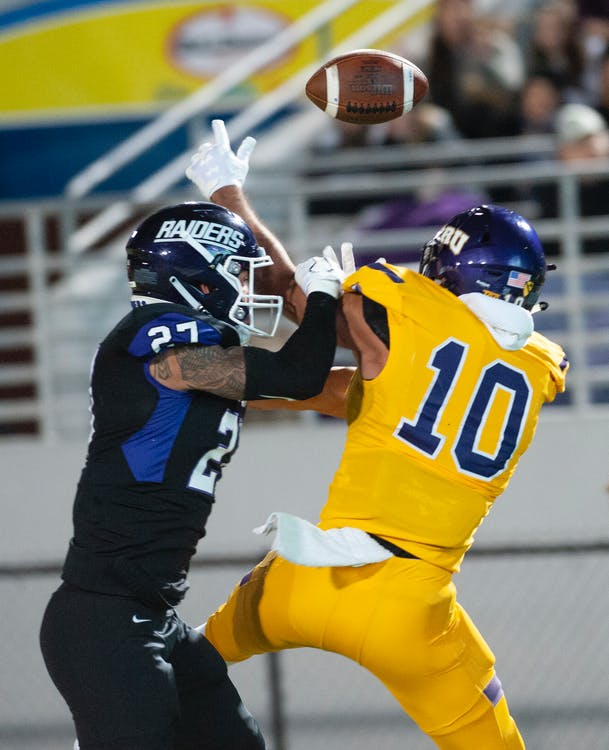Mary Tillman doesn’t expect to get any more answers from the film. And she knows it is far too late for her family to receive some form of justice in the case of her son’s death. She would like people, however, to know more about the true story and that’s why a documentary about her son has been created. Pat Tillman enlisted as an Army Ranger shortly after the 9/11 attacks, spurning a healthy NFL contract to do so. While serving in Afghanistan, Tillman was killed by what was later revealed to be friendly fire. Mary Tillman has spent the years since then going through documents surrounding her sons death and searching for the answers that those documents seemingly fail to give.

The documentary, “The Tillman Story,” opens today in select locations. Mary Tillman joined ESPN Radio NY with Bonnie Bernstein and Greg Buttle to discuss how the making of this documentary came about, what kind of control the Tillman family had over it, the things she would like the public to learn from it, her take on the military term “fog of war,” what her family learned and didn’t learn through a congressional hearing following her research into her son’s death, why the soldiers who killed her son have never been punished and how she expects the film to impact the public.
On how her family became comfortable with releasing their story for the film to director Amir Bar-Lev:
“We had to spend a lot of time with him to feel that we could trust him. He seemed very sensitive to the story and we felt that the story needed to be told because it’s a story that affects everyone. I think a lot people think that we’re doing this just to be vindictive because we think we’re going after some kind of justice for Pat. Initially, I think that was the case, but I don’t think that we’re going to get any more answers in regards to that.”
On how much editorial control the family had on the film:
“Not too much. There were certain things that we felt were inaccurate in the beginning, so we had to correct those things. They were very willing to accommodate, but we didn’t really have much input in terms of editing. It’s their film.”
On one thing she would’ve liked to put back in the film that is important in telling Pat Tillman’s story:
“That’s very difficult. I don’t know that there is any one thing. … A lot of the people don’t understand why we starting pursuing this in the first place. They think that we can’t accept that Pat was killed by friendly fire, and that’s absurd. Friendly fire is a part of war. We all know that and there’s nothing dishonorable about dying that way. What we discovered when we got this information and started getting documents is that there were huge discrepancies, thing in the autopsy that made it appear that the autopsy wasn’t him. We were told by a lot of the soldiers that he basically had no head because of the wounds that he had, and yet the autopsy made it appear as though he had CPR given to him. That doesn’t sound like something they do to a soldier who was deemed dead two hours earlier. That was very suspicious and then we learned that his uniform was destroyed and they didn’t burn it right away in a hospital incinerator, they burned it in a barrel three days later.”
On the term “fog of war” that is used in the film and what she learned about it in meeting with some of the soldiers close to Pat Tillman:
“I haven’t accepted it. I’ve never accepted it as fog of war. … I think that I believe in fog of war, but I don’t think it was fog of war in this case and I say so in the film. I think that the soldiers that shot Pat and potentially could have wounded or killed 40 soldiers … were not in a fog of war.”
On what her and her family got from the congressional hearing following their research into Tillman’s death:
“In terms of us, the oversight committee deemed there was a cover-up; soldiers were asked to lie. Their statements that they had written were changed and they don’t know who changed them. There was no attempt to find out who did that. And then months later they had a hearing … [and the leaders involved] were all allowed to just sort of lie and say they couldn’t remember. They collectively said, I think it was 82 times, ‘I didn’t recall. I didn’t remember.’”
On why the soldiers who fired were never court marshaled:
“They’ve never court marshaled them, they’ve never attempted to. They’ve always said it was fog of war and they accidentally shot at them in a period of four seconds going down a … dry river bed. They didn’t know what they were shooting at. But we have testimony that these soldiers actually stopped their vehicles several times, got out of their vehicle even, and were shooting at the ridge line. … I don’t know why there was no consequence to them.”
On how impactful this film will be:
“That’s what’s very interesting. There’s been a lot written about this and it’s always hard with people and their busy lives to read what’s out there. I think the film is very powerful because it’s a visual medium and it is very well done. Even people who have been skeptical about the story and think that we’re just trying to get attention … but people who actually see the film have a better understanding of why we’re pursuing this.”

Comments